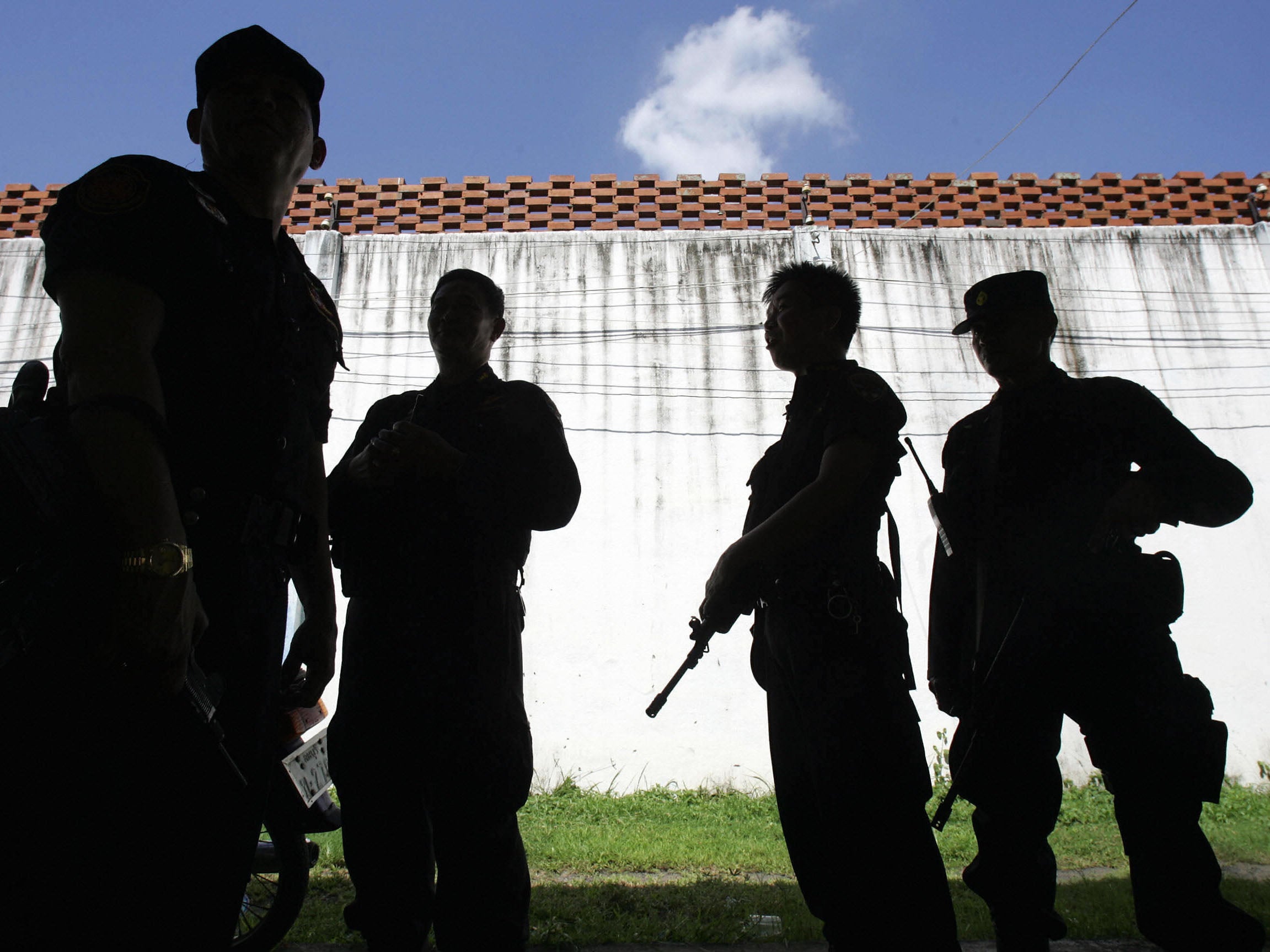Thailand uses lethal injection to execute first prisoner in nearly a decade
Amnesty International condemns action as ‘deplorable’

Your support helps us to tell the story
From reproductive rights to climate change to Big Tech, The Independent is on the ground when the story is developing. Whether it's investigating the financials of Elon Musk's pro-Trump PAC or producing our latest documentary, 'The A Word', which shines a light on the American women fighting for reproductive rights, we know how important it is to parse out the facts from the messaging.
At such a critical moment in US history, we need reporters on the ground. Your donation allows us to keep sending journalists to speak to both sides of the story.
The Independent is trusted by Americans across the entire political spectrum. And unlike many other quality news outlets, we choose not to lock Americans out of our reporting and analysis with paywalls. We believe quality journalism should be available to everyone, paid for by those who can afford it.
Your support makes all the difference.Thailand has carried out its first execution in nine years in a move human rights campaigners condemned as “deplorable”.
Theerasak Longji, 26, was executed by lethal injection on Monday, six years after being convicted of aggravated murder for stabbing a 17-year-old 24 times in order to steal his mobile phone.
The brutal killing drew widespread anger in Thai society, and his conviction was upheld in the appeal and supreme courts.
Theerasak’s execution comes as Thailand’s army chief-turned-premier Prayut Chan-ocha prepares to travel to the UK and France on a highly-anticipated official visit.
The last executions to take place in Thailand were of two drug traffickers. They were put to death in August 2009, after a period of no executions since 2003, according to Amnesty International.
Theerasak was the seventh convict to be executed by injection since Thailand switched methods in 2003 from a firing squad. Thailand has executed 326 people since 1930, according to the country's Department of Corrections.
The department said Monday that Theerasak was executed to be an example to those who think of committing serious crimes.
“Even though many countries have abolished the death sentence, there are still many other countries that still use it such as the US and China who focus on the protection of society and citizens to not become victims of crimes over the priority of the human rights of those who had violated the law,” the statement said.
Thailand is shockingly reneging on its own commitment to move towards abolition of the death penalty and the protection of the right to life
“The Department of Corrections hopes that this execution will serve as a reminder to those who think of committing serious crimes or violating the law to stop and consider this sentence.”
Amnesty International said the execution was a major setback for the country.
“This is a deplorable violation of the right to life,” said Katherine Gerson, Amnesty International’s Thailand campaigner.
“Thailand is shockingly reneging on its own commitment to move towards abolition of the death penalty and the protection of the right to life, and is also putting itself out of step with the current global shift away from capital punishment.”
The Thai prime minister already faced pressure over his human rights record on his forthcoming trip to Europe.
Human Rights Watch’s Asia director Brad Adams said in a statement released on Monday: “Prime minister Theresa May and President Emmanuel Macron should strongly express their deep concerns about the deteriorating state of human rights under military rule in Thailand.
“They should make clear to General Prayut that there will be no return to business as usual until Thailand holds free and fair elections, establishes a democratic civilian government, and improves respect for human rights.”
General Prayut has vowed to transform Thailand's government into a rights-respecting one and has scheduled general elections for 2015.
But, four years later, the promised polls have yet to take place and the junta continue to be criticised by human rights groups for enforcing censorship and blocking public discussions about the state of human rights and democracy.
Join our commenting forum
Join thought-provoking conversations, follow other Independent readers and see their replies
Comments